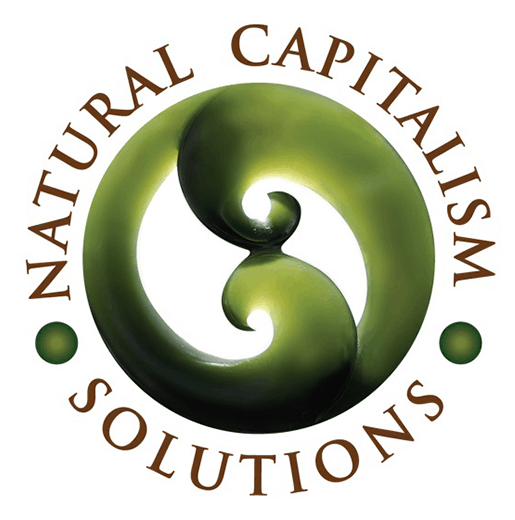Sustainable Industries
[fusion_builder_container hundred_percent=”yes” overflow=”visible”][fusion_builder_row][fusion_builder_column type=”1_1″ background_position=”left top” background_color=”” border_size=”” border_color=”” border_style=”solid” spacing=”yes” background_image=”” background_repeat=”no-repeat” padding=”” margin_top=”0px” margin_bottom=”0px” class=”” id=”” animation_type=”” animation_speed=”0.3″ animation_direction=”left” hide_on_mobile=”no” center_content=”no” min_height=”none”]
25 March 2012
(by LH Lovins & Steve Wilton)
Hands up everyone who wants to spread the green message….
But how?
Sustainability is knocking at the door of every business, but why do so many small and mid-size American business owners deadbolt their minds to more sustainable practices?
Has it ever crossed your mind that they’re just naïve or stubborn or even ignorant?
Or is it we green advocates who are at fault?
Clinging to use of technical language alien to the conversation on mainstream America, many green business gurus are not reaching a general population. In these polarized times, how we communicate may even be driving our cause farther to the fringe.
As OgilvyEarth likes to put it, we need to “Shift sustainability from polar bears to people.”
To make sustainability accessible to mainstream America, the business case must be simple and engaging, spoken in terms everyone can grasp.
At the end of the day it may be more effective to appeal to traditional American values.
Emphasizing Traditional American Values
Margaret Mead once said that the only person who likes change is a wet baby. And I’d argue that the baby squalls all the way through the process. But if you want to get someone to adopt new practices, there are better and worse ways to go about it.
“Most conservation organizations think that you persuade people by marshaling a series of scientific arguments and facts to change people’s minds. In reality, that isn’t what happens. You change people’s minds by figuring out what is important to them—which is rarely science—and you present arguments on their terms.” (Political strategist, Joel Bradshaw)
Engaging business executives with the all-too-common talk about carbon footprints, metric tons of CO2, carbon credits, calculators and audits for a substance they can’t see, touch, or smell—much less put a price on is a hard sell. The intended audience becomes confused. Confused and annoyed, they retreat to old impressions of wonky environmental elitism. Given today’s cultural and political polarities, this is all too easy.
In their report, OgilvyEarth argues that the public-at-large sees sustainability as a business niche or trend, stating that, “(We need) to shift from an over-emphasis on changing attitudes to working on normalizing green behaviors. Essentially, we need to mainstream green.”
The game of “I am right and you are wrong” is a losing one for anyone seeking to persuade someone else to change. Similarly, calling anyone who disagrees with an environmental worldview a denier or skeptic bars sustainability from entering many mainstream business conversations. Sustainability advocates often unknowingly put their message in ways that trigger resistance to change.
Political pollster, Frank Luntz, author of “Words that Work,” describes three realities: logic does not matter; facts do not matter; only belief systems matter. Only facts that make it through the filter of a belief system are worth addressing.
Words and images that alienate your audience torpedo any advantages sustainability may bring. An emotionally charged word like “global warming” triggers resistance in many traditionalist business folks. The prettied-up sister, “climate change,” is like putting lipstick on a pig.
Why even bring up climate and its associated baggage? A recent study, by the Pew Research Group on the American public’s priorities for 2012, found that only 25% of respondents listed addressing the problem of global warming as a “top priority.” When a business audience brings this concern up to us, we reply, “We are talking about saving your company money. We can argue climate science in the bar later.”
“Triple bottom line” is another unattractive phrase. Imagine entering the CEO’s office at a 150-employee manufacturer. After telling her you appreciate how tough times are, and congratulating her company for holding a decent bottom line, try saying, “Now you really should pursue the two other bottom lines: people and planet.” You’ll be lucky if she doesn’t just show you the door.
Wouldn’t it work better to help her see how behaving more sustainably enhances every aspect of her corporate value?
Messaging sustainability is really common sense. Put yourself inside the mind of a hard-working, self-made entrepreneur. And learn to speak their language
Moving Forward
At Natural Capitalism we blend two approaches: the business case for sustainability and traditional American values. It’s a convincing brew that’s tastier for all.
The business case is bullet proof. A majority of Fortune 1,000 companies are now implementing more sustainable operations. These companies are not doing it from the goodness of their hearts, but because sustainability delivers superior financial performance, competitive advantage, and long-term resilience.
According to those wild-eyed environmentalists at Goldman Sachs, companies considered to be leaders in environmental, social, and governance policies also lead the pack in stock performance by an average of 25%.
This is no coincidence. Increasingly, corporate leaders and investors are recognizing that sustainability measures are simply sound business practices. Bottom line improvements spring from short- and long-term cost savings achieved from low-cost, energy efficiency and more productive use of materials. Top lines flourish from enhancing innovation and sales. And behaving in more sustainable ways enhances the brand experience and attracts new market demographics.
Perhaps most significant, a company-wide commitment to sustainability drives increased employee productivity, one of the keys to company prosperity. At a time in which more American workers are unhappy than at any time studied, engaged organizations have 4 times the earnings per share growth rate. Young talent, in particular, wants to work in a job that has meaning. Ninety-two percent of recent grads say that they want to work for an environmentally friendly organization. Such sustainability measures as LEED certified buildings enhance air-quality and lighting, which results in improved employee health, less absenteeism and turnover rates, and 6-16% higher worker productivity.
The Carbon Disclosure Project reckons that the average size business that reports to it (as most of the world’s large companies now do) has $30-40 million of profitable but uncaptured energy efficiency measures. A recent study at UC Davis found that companies that disclose their carbon footprint see an immediate and significant increase in share value.
Twenty-seven studies now underpin Harvard Business Review’s assertion, “Sustainability isn’t the burden on bottom lines that many executives believe it to be…It should be the touchstone of all innovation…In the future only companies that make sustainability a goal will achieve competitive advantage.”
More sustainable businesses also enhance a community’s economic security. Enabling companies to cut costs and drive revenues is the best form of economic development, and results in job creation.
Sustainability is the foundation of a strong national defense, as well. It should be communicated as the basis of individualism, entrepreneurism, the pioneer spirit, and freedom from dependency upon foreign fuels. The can-do attitude of Rosie the Riveter and the heritage of conservation during World War II are all positive triggers that motivate business audiences.
Former U.S. Speaker of the House, Tip O’Neill, once said, “All politics is local.” The appeal for sustainability should be, as well. When you talk about the environment, speak of stewardship in your own backyard and the quality of life at home: local hunting and fishing, local rivers and streams, local wildlife and outdoor recreation.
Far-away images like polar bears, rainforests, and Greenland glaciers dear to green advocates hearts are considerably less compelling to someone trying to keep the doors open on Main Street.
In Colorado “alternative energy” isn’t abstract; we bring it home, talking about harnessing Colorado wind, Colorado sun, Colorado geothermal. We cite the job creation numbers. In the heart of the recession in Colorado, the green jobs were the only ones that were increasing. Business people like to hear what is real to them. The abstract concept of “peak oil” may be the cause, but the pinch of “increasing energy demands” and “commodity price increases” is front of mind to business people. What you call it doesn’t matter–the solutions are the same. What matters is implementing efficiency.
American entrepreneurs blaze new opportunities that benefit us all. They thrive on challenge, imagination, and getting stuff done. They are the ones who will leverage sustainability as the new engine for American prosperity and innovation.
Steve Howard, CEO of IKEA put it this way: “Tackling resource scarcity and climate change and providing a great quality of life for the 21st century’s many people…is the next wave of industrial transformation that will spur economic growth and deliver the jobs of tomorrow.”
Fifty years ago, Edwards W. Deming introduced quality, the principles of statistical process control and continuous improvement, to the business world. American companies ignored him. The Japanese, on the other hand, fully embraced Deming. Within a decade many American companies and whole industries were brought to their knees by the sword of Japanese efficiency and quality.
Let’s not repeat that myopic mistake.
If Deming were to come to an American company today with a new message, what would it be? How would management respond?
The spirit of Deming IS here. It’s called sustainability. Let’s learn its language, and capture its opportunity.
Click on the three-part series below to hear Natural Capitalism’s in-depth discussion on positioning sustainability for the mainstream:
Part #1:
http://www.youtube.com/watch?v=V7YJrdlTI0Y&feature=related
Part #2:
http://www.youtube.com/watch?v=Z9GDWdnGuG8&feature=related
Part #3:
http://www.youtube.com/watch?v=QnAnCweU2d0&feature=related
————
Steve Wilton [/fusion_builder_column][fusion_builder_column type=”1_1″ background_position=”left top” background_color=”” border_size=”” border_color=”” border_style=”solid” spacing=”yes” background_image=”” background_repeat=”no-repeat” padding=”” margin_top=”0px” margin_bottom=”0px” class=”” id=”” animation_type=”” animation_speed=”0.3″ animation_direction=”left” hide_on_mobile=”no” center_content=”no” min_height=”none”][Twitter: @SSWilton]
Steve Wilton moved to Boulder, Colorado 16 years ago. He is a US Navy veteran, with a degree in Economics from the University of Virginia. Work experience centers on small and medium size businesses in the areas of strategic management, business sustainability, marketing, product development and creative work processes. Steve’s experience and ability to engage clients with energy and humor yields exceptional participation and engagement.[/fusion_builder_column][/fusion_builder_row][/fusion_builder_container]

Leave a Reply